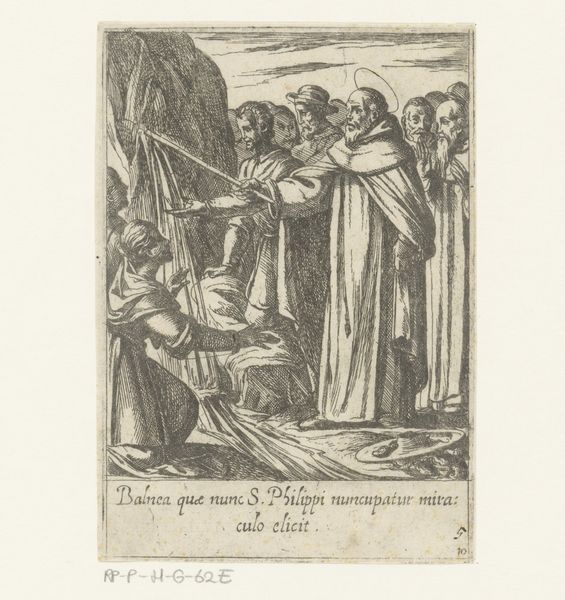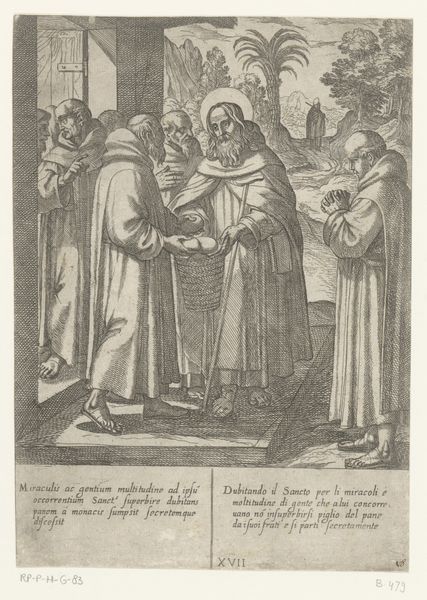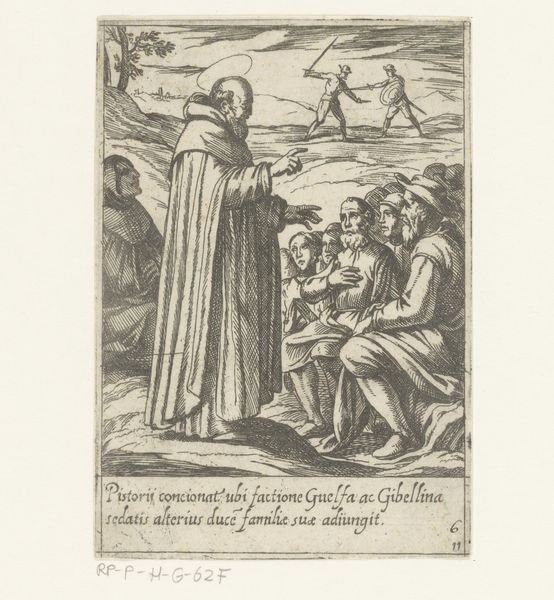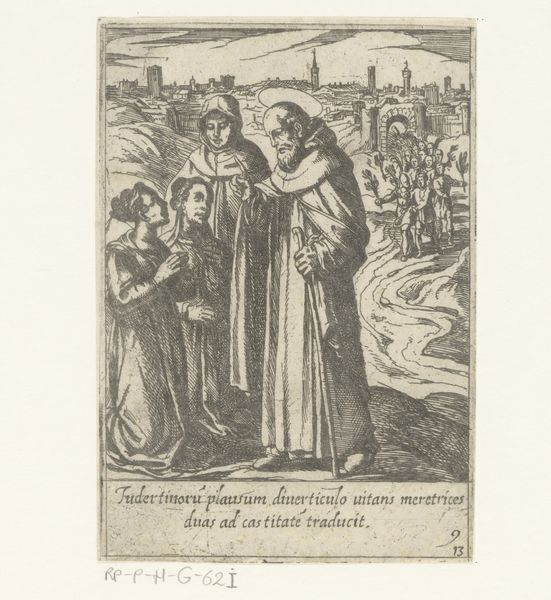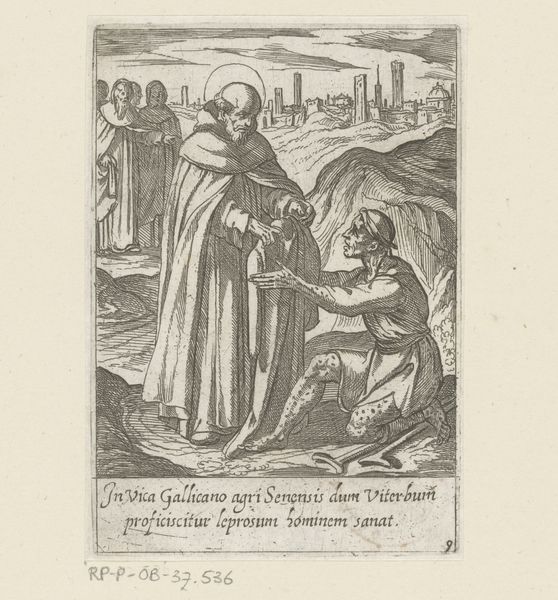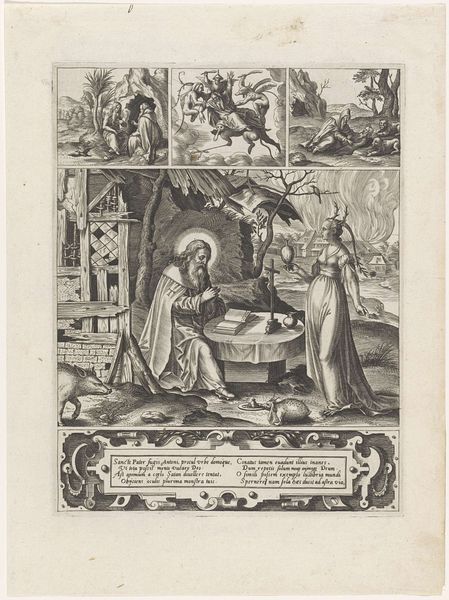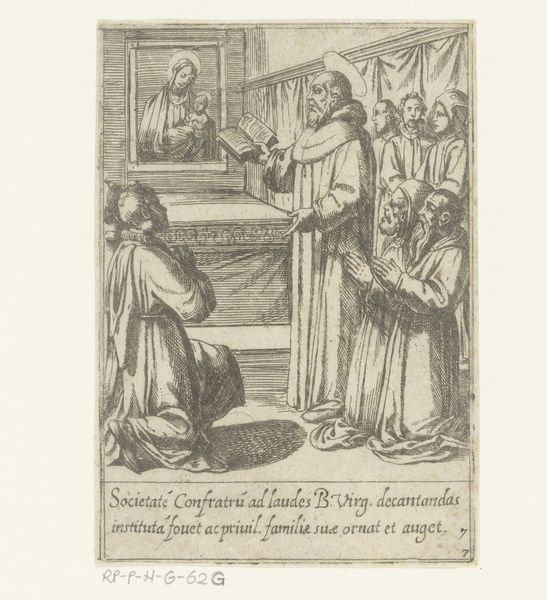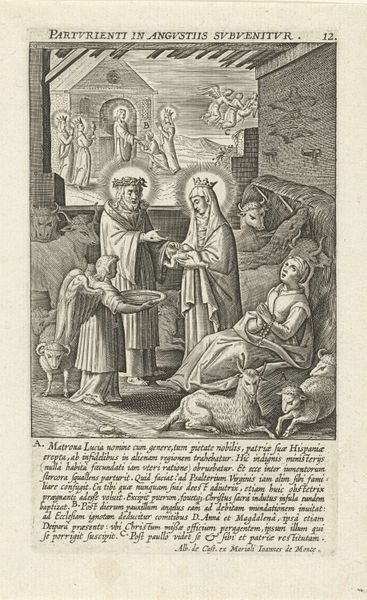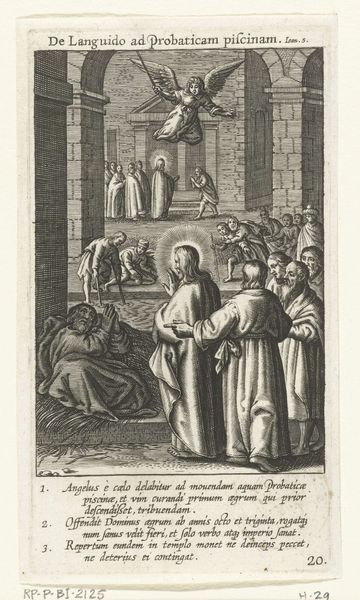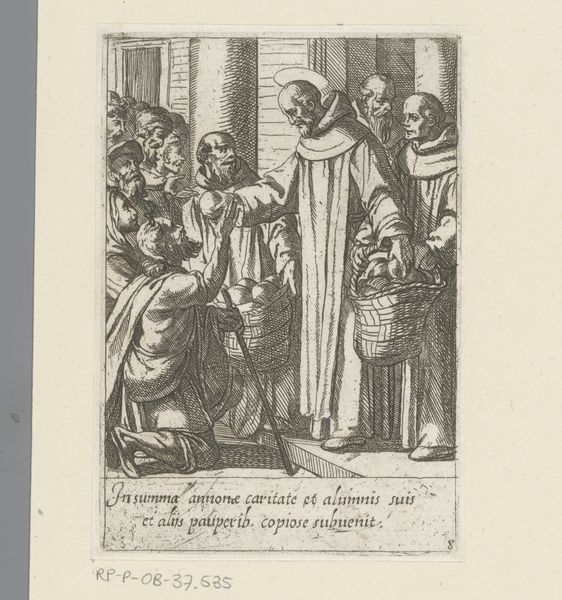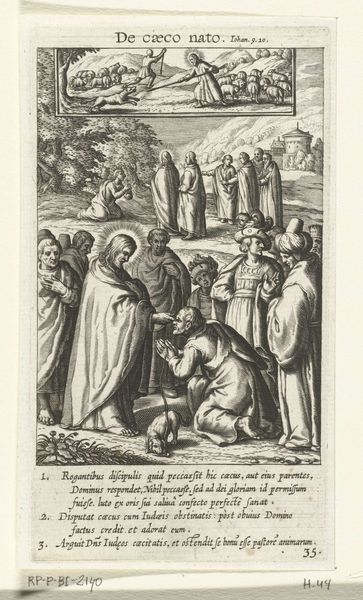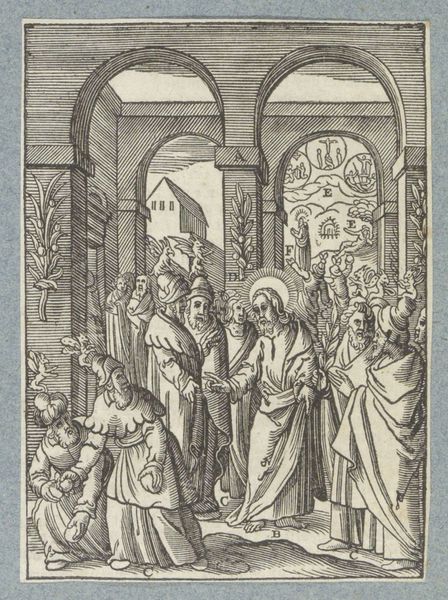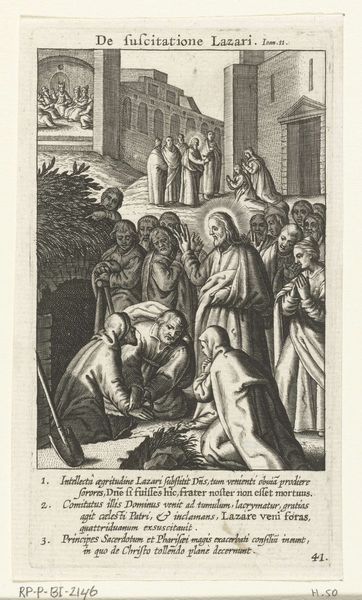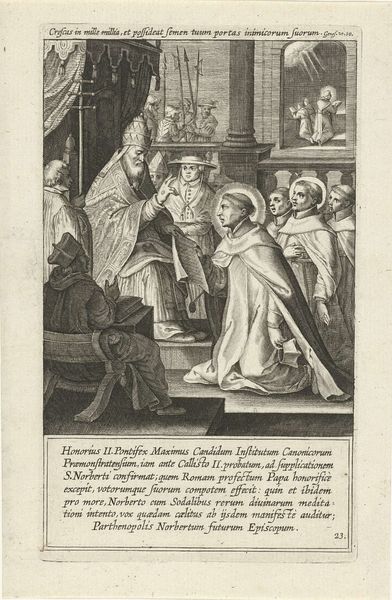
print, engraving
# print
#
old engraving style
#
mannerism
#
figuration
#
cross
#
line
#
history-painting
#
engraving
Dimensions: height 115 mm, width 80 mm
Copyright: Rijks Museum: Open Domain
This print, "De heilige Philippus toegelaten tot de servieten," was made by Antonio Tempesta around the turn of the 17th century. It is made by engraving, a printing process by which lines are incised into a metal plate. Ink is then held in these lines, and transferred to paper under great pressure. The resulting image has a stark, linear quality. It is a testament to the engraver's skill, their ability to control the burin, a specialized tool for cutting metal. Tempesta masterfully uses the technique to describe the scene of a kneeling man being inducted into a religious order, with a vision above. Engraving, a technique rooted in craft, here serves to disseminate religious imagery to a wide audience. This speaks to a tension between the unique skill of the artist, and the demands of mass production and consumption. Considering this, we can appreciate the way that materials, making, and social context are all essential to understanding the full meaning of this work.
Comments
No comments
Be the first to comment and join the conversation on the ultimate creative platform.
